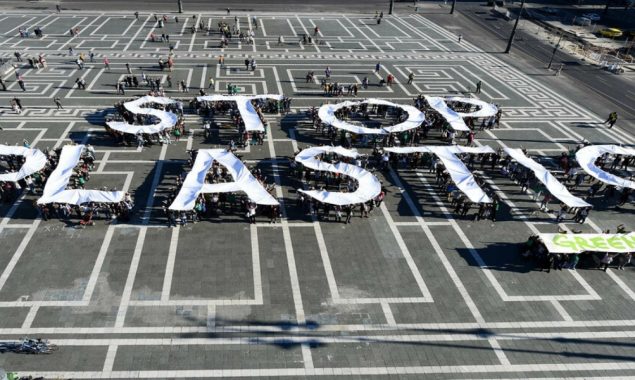
NAIROBI – The United Nations on Wednesday agreed to start negotiating a world-first global treaty on plastic pollution in what has been hailed a watershed moment for the planet.
Nearly 200 nations at the UN Environment Assembly in Nairobi unanimously agreed to create an intergovernmental committee to negotiate and finalise a legally binding plastics treaty by 2024.
“We are making history today. You should all be proud,” Espen Barthe Eide, Norway’s climate and environment minister and UNEA chair, told delegates as the assembly erupted in cheers and applause.
Negotiators have been given a broad mandate to target plastic trash in all its forms — not just bottles and straws in the ocean, but invisible microplastics polluting the air, soil and food chain.
The scope covers the entire life cycle of plastic and could introduce new rules on production, the redesign of products for easier recycling, sustainable use and better waste disposal.
The mandate allows for binding and voluntary measures and provides for the negotiation of global targets and obligations, the development of national action plans, and mechanisms for tracking progress and ensuring accountability.
It also calls for financial assistance to help poorer countries take action.
The broad treaty framework approved by nations — among them major plastic producers like the US and China — does not spell out specific policies, with particulars to be negotiated later.
Diplomats and conservationists hailed the start of negotiations as a milestone for the environment but cautioned that the strength of any treaty would only be determined in talks to come.
The first round of negotiations is expected to begin in the second half of the year.
Officials say it gives negotiators a strong and broad mandate to consider new rules to target plastic pollution, ranging from the phase of raw material to product design and use and, finally, disposal.
This could include limits on making new plastic, which is mainly derived from oil and gas, although policy specifics will only be determined during later talks.
Negotiators also have the scope to consider all aspects of pollution — not just plastic in the ocean but tiny particles in the air, soil and food chain — a key demand of many countries.
The amount of plastic trash entering the oceans is forecast to triple by 2040, and governments have been under pressure to unite behind a global response to the crisis. “Today, no area on the planet is left untouched by plastic pollution — from deep sea sediment, to Mount Everest,” said UN Deputy Secretary-General Amina Mohammed.
“The planet deserves a truly multilateral solution to this scourge that affects us all.”
The rate of plastic production has grown faster than any other material and is expected to double within two decades, the UN says.
Read More News On
Catch all the International News, Breaking News Event and Latest News Updates on The BOL News
Download The BOL News App to get the Daily News Update & Follow us on Google News.




